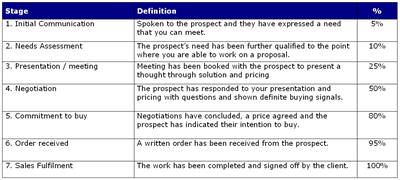It's all to easy for sales people to think that they own the opportunities they are working on. However, in a small company the manager or owner needs to know what is going on - it may be a case of survival when sales are tight. Operations need to know what to plan for, accounts need to be involved if there is a credit issue etc etc.
I don't subscribe to the view that all sales people are prima-donnas, only interested in themselves. If you talk to them about sharing their contacts and opportunities you should do it in a non threatening way - it's amazing how many sales people are a little insecure (the job sometimes demands it). Explain the reasons why you need to know what they are working on and give them an easy way to record information. Remember, you don't want them to be spending all their time on admin.
